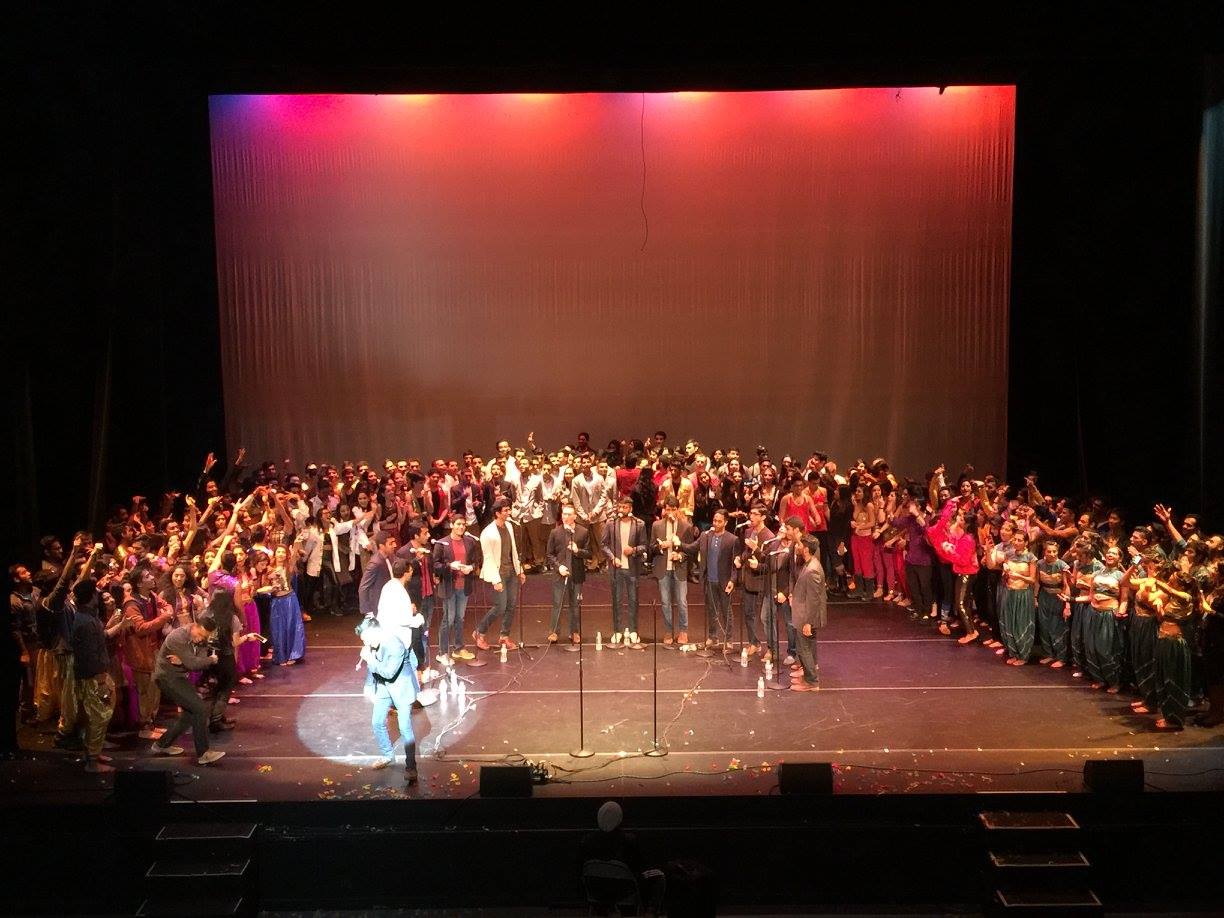President Joe Biden invited Penn Masala, the premier South Asian a cappella boy group to perform at the White House when Prime Minister Narendra Modi visited the United States last year. Mathematics student Raghunandan Raman, who serves as the current president of the band called it an “opportunity of a lifetime.” Penn Masala, the University of Pennsylvania’s boy-band composed mostly of Indian descent students, has gained wide recognition for blending Eastern and Western influences to bridge cultural divides through their music.
This year, the acclaimed a cappella (without instrumental accompaniment) band performed at the inaugural India House at the Paris Olympics 2024. India House, a collaboration between the Reliance Foundation and the Indian Olympic Association, aimed to boost Indian athletes’ performances, support national sports federations, and position India as a potential future host of the Olympic Games.
Conceptualised by Nita Ambani and her team, the India House in Paris showcased the rich legacy of Indian music and celebrating India in a grand style. In addition to music, it featured craft installations, yoga sessions, and dance performances. Penn Masala artists who have performed across the United States, in India and other locations of the world were thrilled about performing during the most coveted sporting event in Paris.
Penn Masala
The boy-band is an evolving group composed of students from the University of Pennsylvania. The group’s membership changes regularly as veteran members graduate and new members join through auditions. While most of Penn Masala’s members are of Indian descent, the group has also had non-Indian members. During significant performances, the former members also join.
Founded in 1996 by South Asian students of the University of Pennsylvania, the band is recognised as the world’s first South Asian a cappella group. It was established with the aim of creating music that crosses traditional cultural boundaries and reflects the experience of growing up with both Eastern and Western influences.
“It was formed by a group of four guys, who saw that a cappella was a big thing across college campuses, but a lot of music that they grew up listening to wasn’t being expressed in this art form. They probably questioned “Why not us? Why can’t South Asians also be a part of this?” shared alumni Saaketh Narayan talking about how Penn Masala got started. “Back then, it wasn’t cool to be Indian or South Asian. It took guts to do what a lot of art groups and the founders of Penn Masala did,” he added.

A Penn Masala performance in 2016
Although the group members have always been in their 20s, in its 28-year-journey, Penn Masala has managed to appeal audiences of all age groups while performing at biggest venues across the US and beyond. Apart from releasing 12 full-length albums it has also performed for the Indian Filmfare Awards, and for heads-of-state, prominent businessmen, and international leaders including Barack Obama, Henry Kissinger, Ban Ki-moon, Mukesh Ambani, among others.
The group also had a cameo role in the Hollywood movie Pitch Perfect 2, released in 2015. The movie received the American Music Award for Best Soundtrack.
The homecoming India tours
Apart from several domestic, Canada and UK tours, US-based Penn Masala has travelled to India multiple times. In 2006, the group celebrated its 10th anniversary with a tour of India. Their most recent tour to India was in May 2023 when they performed seven shows across Goa, Mumbai, Pune, Delhi, Hyderabad and Bangalore. “It provided us with unique experiences. The love and adulation of fans was of next level. They made poems and art for us,” said one of the performers.
Balancing worlds
The loving audience sometimes tends to forget that the Penn Masala artists are at the university to study and that singing is just an additional activity for them. For all of them music is a great break from their academic rigour and professional aspirations – ‘an outlet to step away from the stress, hang out with an awesome group of guys, and jam’.
The current members Raghunandan Raman, Gaurish Gaur, Riju Datta, Venugopal Chillal, Ajay Kilambi, Prateek Adurty, Rohit Rajagopalan and Aryaman Meswani are all studying different subjects at the University of Pennsylvania but has music in common.
The current Penn Masala president Raghunandan was born in Bangor, India. His family moved to the United States when he was young. “I’ve been part of two worlds,” he remarked, “One American growing up in New Jersey and the other at home with my parents and family steeped in Indian culture, including music. Penn Masala combines both the Western and the Indian side of me, and I feel fortunate to be a part of this group and experience that.”
Like him, Penn Masala has had members who were born in India but raised in the US, as well as those who were completely born and brought up in the US. Regardless of their place of birth, Raghunandan’s words resonate with all of them.
View this post on Instagram
Follow Penn Masala on Instagram, Twitter, Facebook and YouTube




